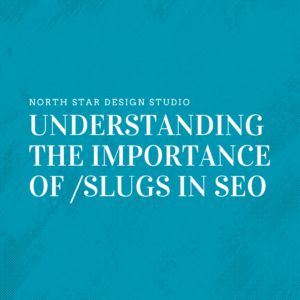Connecticut Entrepreneurs Entrust Their Online Kingdoms to WordPress
Welcome to the wild world of web design, where the jungle of choices can leave even the most seasoned business owner feeling a bit like Tarzan without his trusty vine. You’re not just navigating a landscape; you’re hacking through thickets of advertisements, dodging conflicting advice from well-meaning but non-expert friends or colleagues, and trying to decipher a cacophony of options that seem to speak a different language altogether.
Let’s face it – trying to choose the right platform and programming language for your website can feel a bit like trying to pick the perfect avocado at the grocery store. You squeeze one, it’s too firm. You squeeze another, it’s mushy. And don’t even get us started on the ones with the mysterious brown spots.
But fear not, weary traveler of the digital domain! At North Star Design Studio, we’re here to be your Sherpa through this tangled web of web development. We understand the struggle – the sleepless nights spent agonizing over decisions, the endless scroll through forums and reviews, the urge to just throw your laptop out the window and call it a day.
In this article, we’re going to be your guide, your guru, your guru-guide (hey, we said we’d be witty, didn’t we?). We’ll unravel the mysteries of programming languages and platforms, demystifying their roles and shedding light on how they can make or break your online presence. And we’ll do it all with a healthy dose of empathy and maybe a sprinkle of sarcasm – because let’s be real, sometimes you’ve just got to laugh to keep from crying.
So buckle up, fellow traveler, and get ready to hack your way through the digital jungle with us. We promise there’s a light at the end of the tunnel – and it’s not just the glow from your laptop screen at 3 AM.

Justifying Our Focus on WordPress:
Alright, let’s dive into why we at North Star Design Studio have hitched our wagon to the WordPress train. Sure, we know this article is filled with enough jargon to make your head spin faster than a tilt-a-whirl, but fear not! We’re not just here to dazzle you with technical terms; we’re here to shed some light on why we’re all aboard the WordPress express.
First things first, let’s clear up any confusion: WordPress is indeed a platform, not a programming language. Now that we’ve got that out of the way, let’s talk turkey.
WordPress Site Flexibility:
Picture this: You’re the director of your own digital masterpiece, and WordPress is your trusty paintbrush. With WordPress, we can whip up websites that are as unique as snowflakes, tailored to fit your business like a custom-made suit. Whether you’re a high-flying CEO or a small-town entrepreneur, WordPress bends over backward to make sure your website shines.
WordPress Site Scalability:
Ah, growth – every business owner’s favorite word (and worst nightmare). But fear not, intrepid entrepreneur! With WordPress in your corner, scaling your website is as easy as pie. Whether you’re attracting a trickle of visitors or a tsunami of traffic, WordPress can handle it all with the grace and ease of a seasoned acrobat.
WordPress Site Customization:
Let’s face it – nobody wants to be just another face in the crowd. With WordPress, your website is your canvas, and the possibilities are as endless as the stars in the night sky. Want a sleek, modern design that screams sophistication? You got it. Prefer something a little more quirky and offbeat? Consider it done. With WordPress, the only limit is your imagination.
WordPress SiteSEO Benefits:
Ah, the elusive art of SEO – it’s enough to make even the bravest business owner break out in a cold sweat. But fear not, dear reader, for WordPress is here to save the day! With its built-in SEO features and plugins galore, WordPress lays the groundwork for digital marketing success. From killer meta tags to lightning-fast load times, WordPress has all the tools you need to conquer the wild world of online search.

Programming Languages vs Platforms:
Alright, let’s address the elephant in the room – we know the rest of this article is jam-packed with enough jargon to make your head spin faster than a tilt-a-whirl at the county fair. But hey, we’re not here to bamboozle you with technical terms or leave you feeling more lost than a hiker without a compass. At North Star Design Studio, we believe in keeping it real – because let’s face it, navigating the wild world of web development can feel a bit like hacking through a jungle with nothing but a butter knife. So consider this our humble attempt to clear the air, cut through the noise, and shed some light on the murky waters of programming languages vs. platforms. We’re here to be your trusty guides, your digital sherpa through the tangled vines of marketing mumbo-jumbo and well-meaning (but probably wrong) advice you’ve been bombarded with. So grab a machete, hold on tight, and let’s hack our way through this jungle together.
Programming Language Examples:
- PHP, Python, Ruby, and Java:
- These are programming languages that serve as the building blocks for web development.
- Each language has its own syntax, features, and use cases.
- PHP is particularly prevalent for server-side scripting and is the foundation of platforms like WordPress.
- Swift:
- Swift is a programming language developed by Apple for iOS, macOS, watchOS, and tvOS app development.
- While not directly relevant to web development, understanding the role of different programming languages underscores the importance of choosing the right tools for the job.
Platform Examples:
- WordPress:
- WordPress is not just a platform but also a content management system (CMS) written in PHP.
- It offers a user-friendly interface, extensive plugin ecosystem, and scalability, making it a preferred choice for building dynamic websites.
- Weebly, WIX, and Square:
- These platforms provide website building tools that cater to users with varying levels of technical expertise.
- While convenient, they may lack the customization options and scalability offered by a CMS like WordPress.

Programming Languages vs Platforms Deep Dive
Now that we’ve got our machetes sharpened and our compasses calibrated, it’s time to embark on the next leg of our journey through the tangled underbrush of web development. In this section, we’re diving headfirst into the nitty-gritty details of programming languages and platforms – the bread and butter of the digital frontier. But fear not, fellow adventurers, for we’re not just throwing you into the deep end without a life jacket. At North Star Design Studio, we’re here to be your guides, your mentors, your digital trailblazers through the dense jungle of technical jargon and confusing terminology.
So grab hold of your metaphorical machete and let’s hack our way through this jungle of programming languages and platforms, uncovering hidden gems and avoiding the pitfalls along the way. From the foundational building blocks of PHP, Python, Ruby, and Java to the user-friendly havens of WordPress, Weebly, WIX, and Square, we’ll shine a light on the unique features, benefits, and drawbacks of each. So buckle up, adventurers, and prepare to embark on a journey of discovery unlike any other.
Diving Deeper into Website Programming Languages:
- PHP:
- PHP is a server-side scripting language primarily used for web development.
- It’s popular for creating dynamic web pages and can be embedded into HTML.
- PHP is widely used, powering significant portions of the web, including platforms like WordPress.
- Python, Ruby:
- Python and Ruby are both high-level programming languages.
- Python is known for its simplicity and versatility, widely used in web development, scientific computing, artificial intelligence, and more.
- Ruby is valued for its elegant syntax and productivity, commonly used in web development, particularly with the Ruby on Rails framework.
- Swift:
- Swift is a programming language developed by Apple for iOS, macOS, watchOS, and tvOS app development.
- It’s designed to be fast, safe, and expressive, offering modern features for building robust applications within the Apple ecosystem.
- Java:
- Java is a widely-used, general-purpose programming language.
- It’s renowned for its “write once, run anywhere” capability, allowing developers to create applications that can run on any device that supports Java.
- Java is commonly used for enterprise-level applications, Android app development, and more.
Diving Deeper into Website Design Platforms:
- WordPress:
- WordPress is a content management system (CMS) written in PHP.
- It’s one of the most popular platforms for building websites and blogs, known for its ease of use, flexibility, and extensive plugin ecosystem.
- HTML/CMS:
- HTML (Hypertext Markup Language) is the standard markup language for creating web pages.
- CMS (Content Management System) refers to software that allows users to create, manage, and modify digital content.
- HTML/CMS likely refers to platforms that use HTML as the foundation for web content, possibly coupled with a CMS for managing that content.
- Weebly:
- Weebly is a website builder platform that allows users to create websites using drag-and-drop tools.
- It offers a variety of templates and features for building websites without requiring coding skills.
- Square:
- Square is a financial services and mobile payment company.
- It provides tools for businesses to accept payments, manage inventory, and analyze sales data.
- Square offers APIs and SDKs for developers to integrate payment processing into their applications.
- WIX:
- Wix is a cloud-based web development platform that allows users to create HTML5 websites and mobile sites through the use of online drag and drop tools.
- Laravel:
- Laravel is a PHP web application framework.
- It provides expressive syntax, tools for robust application development, and a large ecosystem of packages.
- Drupal:
- Drupal is a free and open-source content management framework written in PHP.
- It’s known for its flexibility and scalability, making it suitable for creating various types of websites and web applications.
- Kartra:
- Kartra is an all-in-one marketing platform that offers tools for building websites, sales funnels, email marketing, and more.
- It’s designed to streamline online business operations and optimize marketing efforts.

SEO Impact of Programming Languages in Web Development: Navigating the SEO Jungle
Welcome to the dense and tangled jungle of search engine optimization (SEO), where every programming language is like a different species of plant, each with its own unique characteristics and quirks. In this section, we’re venturing deep into the heart of this digital wilderness to uncover how the choice of programming language can shape a website’s SEO performance. From the towering giants of PHP and Python to the swift vines of Ruby and the sturdy branches of Swift and Java, each language plays a vital role in the ecosystem of web development. So grab your machete and let’s hack our way through this SEO jungle, discovering the hidden treasures and dangerous pitfalls that await us.
Understanding SEO and PHP Programming Language
Technical and On-Page SEO:
- Dynamic Content Generation: PHP is commonly used for dynamic content generation, allowing websites to serve personalized content based on user interactions or database queries. Proper implementation of PHP can facilitate the creation of SEO-friendly URLs, meta tags, and structured data markup.
- Server-Side Performance: PHP’s efficiency and performance on the server-side contribute to faster page load times, which is a crucial factor in SEO rankings.
Off-Page SEO:
- Content Management Systems (CMS): Many popular CMS platforms, such as WordPress, Joomla, and Drupal, are built using PHP. Leveraging these platforms can streamline content management and publishing workflows, enhancing off-page SEO efforts through regular content updates and optimization.
Understanding SEO and Python / Ruby Programming Langauge
Technical and On-Page SEO:
- Versatility: Python and Ruby are versatile languages with extensive libraries and frameworks like Django (Python) and Ruby on Rails (Ruby) for web development. These frameworks offer features for implementing SEO best practices, such as customizable URL structures, efficient data handling, and template caching.
- SEO-Friendly Code: Clean and well-organized code written in Python or Ruby contributes to better readability and maintainability, making it easier to implement on-page SEO elements like title tags, meta descriptions, and schema markup.
Off-Page SEO:
- Community Support: Both Python and Ruby have active developer communities that contribute to the development of SEO-related tools, plugins, and extensions. Leveraging these resources can enhance off-page SEO efforts through link building, social sharing, and content distribution.
Understanding SEO and Swift Programming Language:
Technical and On-Page SEO:
- iOS and macOS Compatibility: Swift is primarily used for developing native applications for iOS and macOS platforms. While it doesn’t directly impact on-page SEO for websites, Swift can contribute to a seamless user experience across different devices, which indirectly influences SEO rankings.
Off-Page SEO:
- Mobile Optimization: As mobile-friendliness is a crucial factor in SEO rankings, websites with mobile-responsive designs built using Swift can benefit from improved user engagement and lower bounce rates on mobile devices, positively impacting off-page SEO efforts.
Understanding SEO and Java Website Programming Language:
Technical and On-Page SEO:
- Enterprise Applications: Java is widely used for building enterprise-level web applications. While it may not offer as much flexibility for on-page SEO customization compared to other languages, Java-based websites can still implement SEO best practices such as responsive design, fast page load times, and secure HTTPS protocols.
Off-Page SEO:
- Scalability and Reliability: Java’s scalability and reliability make it suitable for large-scale web projects that require robust performance and stability. This can indirectly benefit off-page SEO efforts by providing a stable platform for content delivery, user engagement, and social sharing.
In conclusion, while the choice of programming language can impact various aspects of SEO, including technical implementation, on-page optimization, and off-page strategies, it’s essential to consider other factors such as website architecture, content quality, and user experience to achieve optimal SEO results.
WordPress: King of the Jungle
As we emerge from the dense undergrowth of web development, one platform stands tall above the rest, like a mighty redwood towering over the canopy of a digital jungle. Yes, you guessed it – we’re talking about WordPress, the undisputed king of the online wilderness.
Throughout our journey, we’ve encountered a myriad of platforms, each with its own strengths and weaknesses. We’ve seen the user-friendly interfaces of Weebly, Squarespace, and Wix, and the raw power of Laravel and Drupal. But none compare to the versatility, performance, and SEO-friendliness of WordPress.
Picture WordPress as your trusty jungle guide, leading you through the tangled vines of customization and scalability with ease. Need a website that’s as unique as a rare orchid? WordPress has you covered with its extensive theme and plugin ecosystem, allowing for endless customization options. Worried about handling a sudden surge of visitors, like a stampede of elephants through the jungle? Fear not – WordPress’s performance and scalability ensure that your site can handle whatever the digital wilderness throws at it.
And let’s not forget about SEO – the elusive art of climbing to the top of the search engine canopy. With WordPress’s built-in SEO features and plugins like Yoast SEO and All in One SEO Pack, your website will be climbing the ranks faster than a spider monkey scaling a tree.
But perhaps the most valuable asset of all is WordPress’s vibrant and active community – a jungle tribe of developers, users, and contributors who work tirelessly to keep the platform at the cutting edge of web development. With their support, your website will never be left stranded in the wilderness.
So as you journey through the digital jungle, remember this: when it comes to web development, there’s only one platform you can truly trust – WordPress. So grab hold of your machete, summon your courage, and let’s venture forth into the wild unknown together. With WordPress by your side, the sky’s the limit – and the jungle is yours to conquer.





